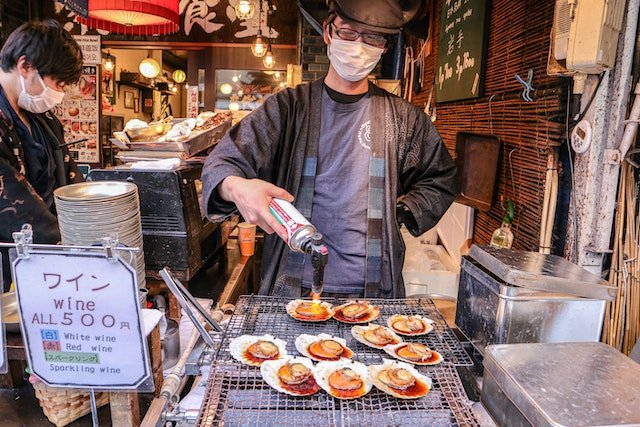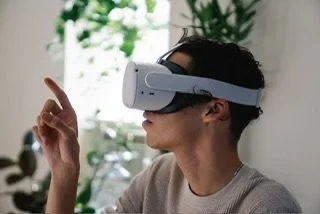But What Does It Mean? Breaking Down Travel Slang for 2024
All done? Welcome back, let’s carry on. As we head toward the close of the first full year of travel since the pandemic, travel providers and consumers alike are finding unique ways to adventure and explore. The most popular issues at the moment surround sustainability and eco-tourism which is excellent news; we’re living on a dying planet and we need to be more conscientious with how we travel.
However, new ways to travel mean a new slew of terminology and slang to decipher, some are self-explanatory and some less so. There will be dozens upon dozens of new terms in the upcoming year but let’s keep it simple and go through the five terms that are expected to top the travel trend vocabulary list and what these might realistically look like for tourists. As you explore various ways to make your holidays more sustainable in the next year, hopefully these definitions and examples will make it a wee bit easier to wade through everything and help in making better travel choices.
Regenivores and Climatarians
From within the travel industry, we’re expecting to see these interchangeable terms everywhere in 2024. Prepare to read countless articles and blog posts (including this one, I suppose) talking about the rising age of these two terms and brace yourselves for the travel influencers claiming to be at the forefront of this movement. I can’t wait. Please note the heavy sarcasm in that last sentence. So, let’s define what they are before social media personalities and travel marketers make us feel like shit human beings for not being in the know.
Both of these terms revolve specifically around food but are predicted to heavily influence what we focus on before and during travel in 2024; simply put, these are quite intense eco-versions of food tourism. Reginivores and climatarians are focused not just on what they eat and consume but the entire process of how food is produced; how and where it is sourced, whether suppliers are compensated fairly, and the overall ecological damage of the products they consume. In its essence, this doesn’t seem like an intense subject at all; however, I am willing to predict that a lot of travel influencers will manipulate this a bit, take things too far to push the boundaries of various algorithms and trends, and, as a result, make the average tourist feel quite lacking in their own sustainable travel behaviour. Think responsibly sourced organic food but on holiday and on crack. At the heart, reginvores and climatarians aim to make sustainable food consumption the core of their travel adventures, making food the foundational reason for booking a holiday.
I am a massive foodie when I travel. I get great joy from experiencing new foods and flavours and always recommend others try to be a bit more adventurous when they travel in order to more fully experience the local culture and traditions of their host destinations. If you’re struggling to find some ideas how to get more involved with local cultures while travelling, pop over to my blog article on becoming sustainable travellers.
Flex – air – ians
Travelling more sustainably is at the forefront of travellers’ minds post-pandemic with a staggering 76% of people wanting to make more conscientious travelling choices, according to a survey conducted by Booking.com. When we think of the words ‘travel’, ‘sustainability’, and ‘climate-change’ together, I would argue that most minds jump to air travel being the biggest contributor to global carbon emissions within the travel industry. The solution is often presented as simple: if we cut out flights then we cut down carbon emissions. Although this is undeniably true, it is both impractical and unmanageable to cut out air travel entirely. If we’re honest with ourselves, air travel is going nowhere (no irony intended) and if you pressure yourself to try to remove flights from your itineraries completely you might find that it simply isn’t affordable or manageable for the majority of travellers and, as a result, booking your trips tends to become infuriating. What a wonderful way to start a holiday – full of rage and hatred.
This is where the flexairian trend may give you a bit of hope. Instead of cutting out flying altogether, the newest travel trend is seeing people book part of their travel by plane and the other parts by coach, rail, boat, or even bike. This may seem like a new trend for some but, in reality, this has been a popular method of travel for decades, think inter-railing, coach trips around Europe, motor biking through Southeast Asia, long distance road trips like Route 66, river cruises etc. For super eco-friendly travellers, it can still feel like being a flexairian isn’t making enough of a change. I would urge you not to be so hard on yourself, don’t get too discouraged, and remember that as a travel consumer your choices will influence market forces and companies will follow suit to provide consumers with what they want and demand, even if only for their profits’ sakes. So make those seemingly small but more sustainable choices. I promise it is better than doing nothing.
Workation
While this isn’t a new concept, it is predicted to be one of the travel buzzwords for the upcoming year so it gets a place on the list. The word itself is pretty easy to break down; it’s simply the combining of the words ‘work’ and ‘vacation’ to create the idea of working while you are on holiday or travelling.
I have to do this.
A lot.
Not so much the holiday part, but the working while travelling and being on the move. When it works, it is incredible. When it doesn’t work, it is hell on Earth. The second one is more common. We have heard of digital nomads – people who live in various places for a short period of time, work remotely, before moving on to the next location. It elicits images of warm, sun-filled poolside or beach offices, cheeky mid-afternoon cocktails, incredible food on tap, and a snappy workday of three to four hours, max. This is not the norm.
Let me clarify with personal experience a bit. I travel consistently for work which means I often have to do my research, writing, or editing while on public transport or in my accommodation where I run into a myriad of different issues: Wi-Fi not working, tiny airplane and train tables, no charging ports, having to keep an eye on all of my belongings on over-crowded transport while trying to concentrate on work, nosey commute neighbours who keep reading over your shoulder, or the noises of loud, zoo-like copulation coming from the couple next door to you in the hotel. The perfect environment for concentration and productivity.
Another aspect that needs to be considered is location. If my work destination is a sun-drenched beach, which it almost never is, then I am doing exactly fuck all work once I get there. I will be on the beach nowhere near my phone or laptop. I know myself well enough to understand this which is perhaps why I don’t go to those sorts of destinations but I have seen so many people try and fail to work remotely at a holiday-style destination and, for most, it simply provides too many distractions from work. I don’t want to put people off and if you can make a workation work for you, then do it. I’ve just found through years of experience it isn’t always what it’s cracked up to be and can come with plenty of difficulties. You have to be organised to make it work while simultaneously being able to go with the flow – I find these to be conflicting mindsets for most people when it comes to working and productivity styles. Just something to weigh up when you see this term everywhere next year.
Bleisure
This is the workation’s more grown up sibling. Bleisure wears a tie to work, has a briefcase, and a mortgage that needs paid. It basically combines the idea of business trips and leisure holidays. Although I’m not in love with the word itself, I have been doing this exact thing for years and I have to say that I highly recommend it – if you can make it work for you.
Similar to the workation, it sounds better in theory than it is in practice. I would say that I find a bleisure trip better for productivity because the trip itself usually centers around a specific work event, such as a conference or meeting. I find it easier to make the necessary separation between work and play with this setup. The reason a lot of people are starting to partake in bleisure trips is because their work or company pays for the travel and the accommodation (at least for the time of the scheduled work) saving travellers a decent amount of money. I’m lucky to work with one company that has always offered and encouraged us to do this so that we can get a feel for the cities and countries in which we operate; this is why I started doing bleisure trips a few years ago any time it fit into my schedule.
Augmented Reality Exploration (ARE) and Virtual Reality (VR)
This new travel terminology is a bit different from the others on this list as it technically isn’t travel at all. However, it is a way to partake in the exploration of any place at any time without having to be in the physical geographical location. Simply put, Augmented Reality (AR) combines the interaction between a virtual world and real-world objects and Virtual Reality (VR) is full immersion in a computer-generated world.
I have been on both ends of the use of this new technology for tourism purposes. During the pandemic when all travel was halted, I was asked to write the scripts for virtual tours around the city of Berlin and conduct the test tours with live participants. On the other side, I have taken students to a Danish company in Copenhagen where we partook in a workshop about Virtual Reality (VR) and were able to use some of the newest technologies and programs allowing us to see what this experience would be like from a participant’s perspective. I have to say, it was pretty incredible.
Although, I would never say that VR or ARE experiences can replace or truly compare to real-life travel, I will say that the implementation of these experience will open up the world of travel to numerous people who cannot travel because of disabilities, cost, fears and phobias, illness, and numerous other reasons. Travel is a luxury and although I believe it should be accessible to everyone, we just aren’t there yet. In the meantime, ARE and VR could potentially provide decent alternatives as they become more accepted, widespread, and affordable.





